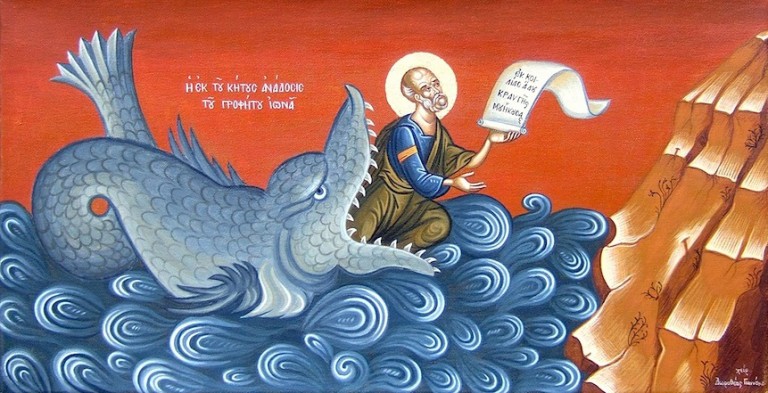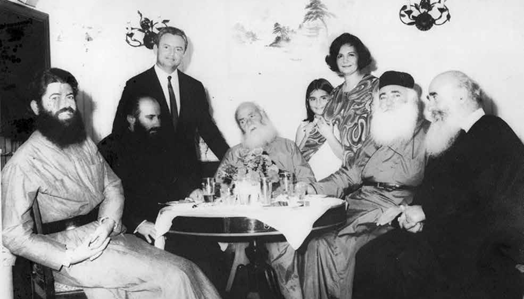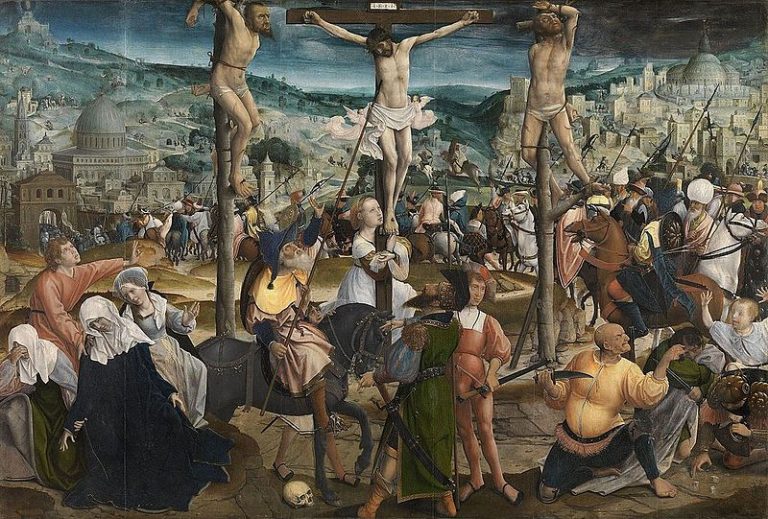The prophet Jonah: mission and prophecy
The prophet Jonah – whose name means “dove” – is found in the Old Testament book of the same name, not as the author of the book but as its protagonist. He was the son of Amathi and lived in the first half of the 8th century, at a time when Nineveh was in its heyday, which is why he is among the earliest prophets. As His prophet, therefore, God commanded him to go to Nineveh and announce its coming punishment because of the depravity of its inhabitants. Jonah not only disregarded, but also disagreed with the Lord’s command. Thus, in disobedience, he followed a course contrary to that which he was commanded. He boarded a ship bound for Tarshish. Divine counsel then raised a sea disturbance and forced the sailors to cast lots, so that in this way it might be made known who was the cause of God’s wrath. Naturally, the lot fell on Jonah, who was forced to reveal his faux pas. He then suggested that they throw him into the sea to save themselves. So they did. When Jonah found himself among the raging waves, God commanded a large fish to swallow the prophet. For three days and nights he remained in the dark belly of the fish. Repentant, then, he prayed in broken prayer. His prayer was answered and the Lord commanded the whale to vomit the prophet on land. After all this, He repeated to Jonah His command to go to Nineveh and announce His message. This time Jonah obeyed and his preaching fell on ears. The king and the people of the city repented and showed their conversion practically and sincerely. Seeing this, the Lord had compassion on them and cancelled the punishment, which distressed and angered the petty prophet. Jonahmuch to his credit, he complained to the Lord about His excessive love and mercy towards foreigners and irreligious people. But God, who loves even those who grieve Him, chastised the prophet with an instructive incident. Jonah had stood outside Nineveh and wanted to build a shelter to protect himself from the sun until he could see what would happen to the city. Then the Lord commanded a tree to be planted there so that Jonah could rest under its shade, which caused him great joy. However, the next day a worm pierced the tree and it withered. As if all this were not enough, at God’s prompting, the sun burned Jonah, driving him to such despair that he wanted to die. Then the Lord asked him if it was right to be angry because of this plant, and Jonah answered in the affirmative. And God continued: “Be careful, Jonah. You have neither cut yourself for this plant nor made it grow. It only grew in one night and the next day it withered away. And yet you were sorry for it! Shouldn’t I be sorry for Nineveh, the great city? In it there are more than a hundred and twenty thousand people who don’t know their left hand from their right. There are also many animals there.”

Mission and prophecy
A prophet is, in principle, one who speaks on behalf of another. In the Old Testament he is, on the one hand, “the mouth and interpreter of God” and, on the other hand, one who foretells the events that are to take place. He is the one to whom the truth is revealed and who must convey it to the people. This wondrous phenomenon of prophecy is found from the very beginning of the history of ancient Israel. Indeed, Abraham is the first to be designated as a prophet (Gen 20:7), but the other patriarchs also receive the same title. “This phenomenon appears as a gift of God, granted to persons who are chosen and called by Himself in order to minister His saving work” (Kalantzaki Stavrou, Introduction to the Old Testament, ed.) This is exactly the case with the apostles, who are the preeminent missionaries. Jesus, referring to them, points out: “You have not chosen me, but I have chosen you, and I have chosen you that you may follow me and bear fruit” (Jn 15,16), that is, they are chosen by Jesus to carry out his saving work, the evangelisation of the whole world. All of us today, Orthodox baptized Christians who have the Holy Chrism, must do the same, since God has chosen us out of billions of people to spread His truth. But let us focus on the specific incident mentioned above with the prophet Jonah as the protagonist. The Lord, the same One who chose Israel as His people, commands His prophet to preach repentance to the alien and irreligious inhabitants of the city of Nineveh. In this way, the “universality of God and His interest in the repentance and salvation of all people without exception” (Kalantzaki Stavrou, Introduction to the Old Testament, ed. Pournara, Thessaloniki 2006, p. 749). What a paradox for Jonah, who as a fanatic Jew was possessed by hatred for other people? But what is normal for God, the father of the whole world? This command of God to Jonah, was it not the prophecy of Christ’s command, “Go ye evermore and make disciples of the Gentiles” (Mt 28:19)? By this event, the sending of the prophet to Nineveh, God wants to show the Jews then, and us Christians now, that His gospel has a universal perspective and that He is the Father of mankind.As Basil the Great points out, God’s law is “not only in Jerusalem and Israel, but also in the captivity, and in Nineveh, and in many parts of the earth” (EnarratioinprophetamIsaiam 2.72.15).He also wants to show how an entire people can repent at the word of a prophet then, an apostle in apostolic times, and a missionary today… Finally, when we close our ears to Jesus’ missionary exhortation and are indifferent to His work, we are imitating Jonah’s petty and selfish attitude. For when we turn away from the Divine exhortations and pursue our own worldly “wills,” we are led into the sea turmoil, the belly of the whale of our passions and endless sorrow, a consequence of our turning away from God. But practical repentance, such as that of the people of Nineveh, and our alignment with God’s will, as Jonah did afterwards, restores our relationship with Him and makes us new prophets, apostles and missionaries, that is, His workers.
The memory of the Prophet Jonah is commemorated September 21
Apolyticon
Eloquent trumpet, of divine judgments, in the world fallen, crying out, John the Ninevite repentance and correlations in the garden, the three days’ vigil of the Saviour, wherefore pray thou, give unto thee, O ye old men, the mercy of sins and great mercy.




